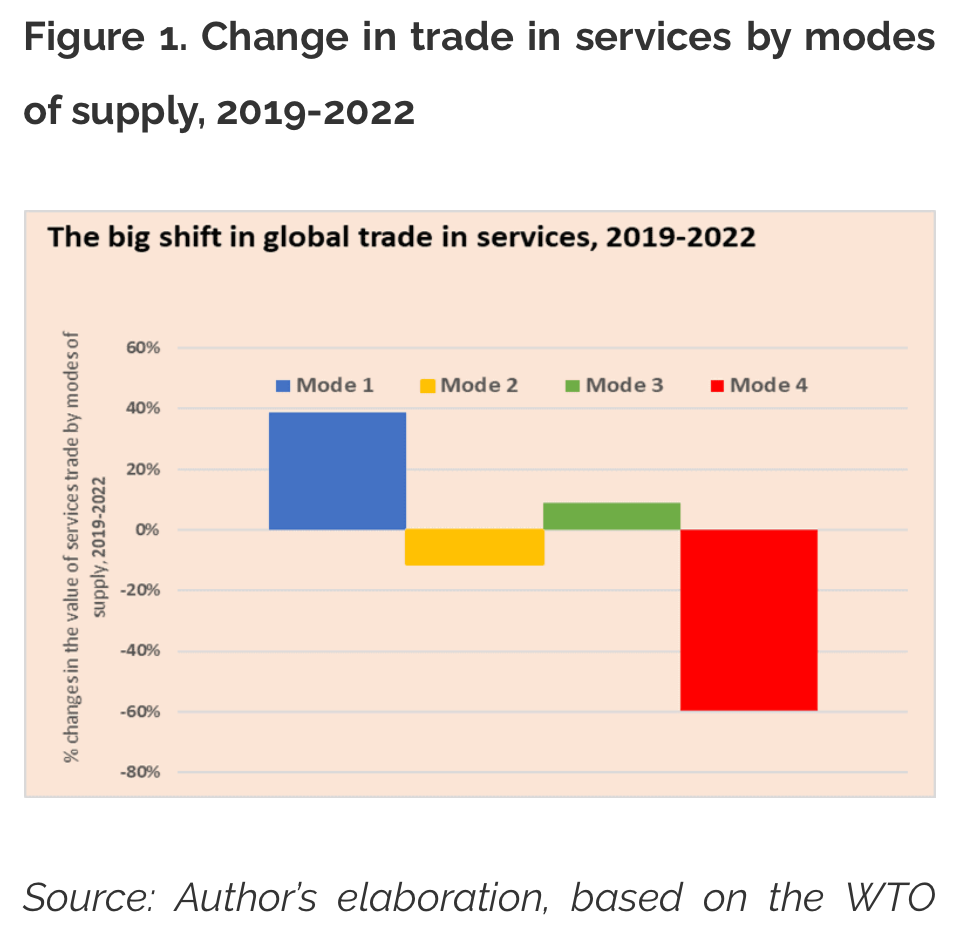Good morning.
As you’re probably aware, the UK Labour Party won yesterday’s General Election by a landslide. So it’s going to be all change in UK trade policy.
Earlier this week I published a piece looking at 12 trade-related things Labour will be confronted with, so I’m not going to spend too much time talking about it in today’s newsletter.
One thing I will flag is that since posting there has been progress on a trade agreement that Labour **could** decide to be interested in, the Agreement on Climate Change Trade and Sustainability (ACCTS).
Earlier this week, Costa Rica, Iceland, New Zealand and Switzerland announced that the ACCTS negotiations have finally concluded.
As per the press release, ACCTS includes commitments on …
Environmental Goods: The ACCTS includes the most ambitious and environmentally-credible list of environmental goods to date, with a definition and criteria to guide ongoing updates. Tariffs will be eliminated on over 300 environmental goods on entry into force of the Agreement, including solar panels, wind and hydraulic turbines, electric vehicles, wool fibre, recycled paper, electric static converters, and wood products offering a more environmental alternative to carbon-intensive construction materials. The Agreement also includes commitments on conservation and sustainable management of ecosystems relevant for the production of environmental goods. Tariff elimination will make such products cheaper to buy, thereby incentivising use and investment in related technologies.
Environmental Services: The ambitious and environmentally-credible list of more than 100 environmental and environmentally-related services subsectors established by the ACCTS were selected according to their substantial contribution to addressing pressing environmental purposes. Our schedules of commitments will facilitate trade in environmental and environmentally-related services through market access and certainty for service suppliers. This aims at supporting environmental outcomes and sustainable development.
Fossil Fuel Subsidies: A new framework to discipline and eliminate harmful fossil fuel subsidies will support the reduction of global emissions and promote sustainable development outcomes, while reflecting the complexities of reforming fossil fuel subsidies across a set of diverse economies. We are pleased to contribute a meaningful definition of fossil fuel subsidies to international efforts, alongside clear prohibitions and a limited set of exceptions to safeguard fundamental policy goals, including for energy security and disaster resilience; all subject to transparency, cooperation and review.
Ecolabelling: The principles-based guidelines for voluntary eco-labelling programmes and related institutional mechanisms will provide an innovative and useful tool to promote trade in sustainable products by helping ecolabels to best achieve their environmental purposes. They will help consumers and businesses to receive meaningful information to assist in choosing products based on their environmental credentials, while avoiding the inadvertent creation of barriers to trade. The guidelines may also assist firms to add value to their environmentally-friendly goods and services.
All very Labour, right?
Maybe.
These negotiations have been around for a little while, and the UK considered participating under the Conservative government.
They decided not to, in part, because of concerns around the definition of fossil fuel subsidies, although there was a general sense that this could be resolved. The main impediment was in relation to the list of goods set for tariff elimination: the UK had identified a few it wanted to keep for the purpose of leverage in FTA negotiations.
Also, given the current climate, emphasis added:
Environmental Goods: The ACCTS includes the most ambitious and environmentally-credible list of environmental goods to date, with a definition and criteria to guide ongoing updates. Tariffs will be eliminated on over 300 environmental goods on entry into force of the Agreement, including solar panels, wind and hydraulic turbines, electric vehicles, wool fibre, recycled paper, electric static converters, and wood products offering a more environmental alternative to carbon-intensive construction materials. The Agreement also includes commitments on conservation and sustainable management of ecosystems relevant for the production of environmental goods. Tariff elimination will make such products cheaper to buy, thereby incentivising use and investment in related technologies.
So let’s see.
Chart of the week
In a recent ECIPE paper looking at how trade in services has changed in recent years, DG Trade’s Lucian Cernat provides this chart:
For those of you not familiar with the terminology: what this shows is that during the pandemic era, as you would probably expect, there was a big increase in the value of services traded remotely, for example a consultant sitting in his bedroom in the UK providing paid advice over Zoom to a company based in Japan (mode 1). There was also a corresponding drop off in the value of services provided in person by foreign nationals on temporary contracts, for example, an American nuclear engineer travelling to Germany to provide some short-term advice (Mode 4). Mode 2 — people travelling abroad to use a service, for example, me going on holiday to Italy – and Mode 3 – services provided in-country by subsidiaries or branches of foreign firms – remained pretty flat. Mode 3 makes sense, Mode 2 is slightly more surprising (given it was difficult to go abroad on holiday).
Tariffs
Whenever a government or politician proposes tariffs, I always like to take a look at which companies react positively or negatively because I think it tells you quite a lot about the relative strengths and weaknesses of a country.
On that note, following the Biden decision in May to further hike tariffs on Chinese imports, US companies have been telling USTR what they think about the tariffs.
Here’s a random selection:
Port Liberty USA is concerned that the tariffs on cranes will
neither (a) enhance the effectiveness of the tariff actions in obtaining the elimination of or in counteracting China’s acts, policies, and practices related to technology transfer, intellectual property and innovation, or (b) improve U.S. port cybersecurity.
Why?
Keep reading with a 7-day free trial
Subscribe to Most Favoured Nation to keep reading this post and get 7 days of free access to the full post archives.




